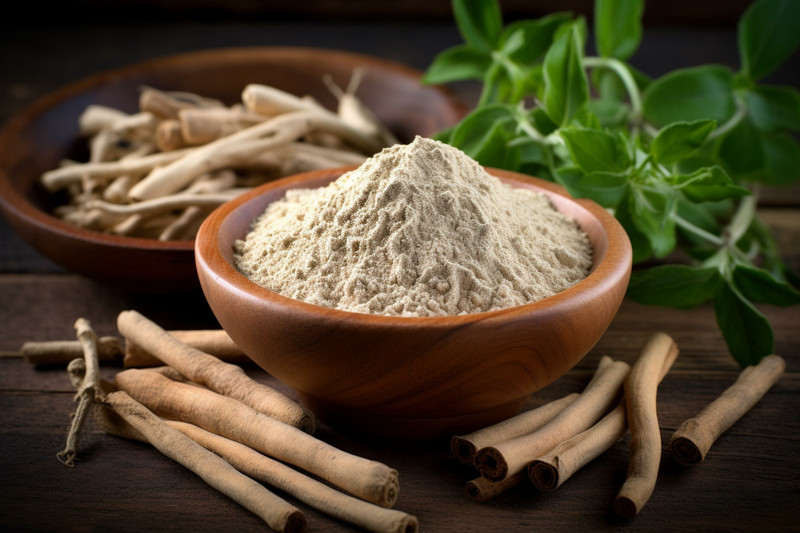If you are looking for an herb or supplement with a long track record of providing a plethora of health benefits, perhaps you need look no further than ashwagandha. People have been using this highly adaptable herb not just for decades or centuries but for thousands of years. That is because it is significant to a traditional form of medicine known as Ayurveda, which is based on natural healing precepts.
Ashwagandha’s multifaceted characteristics are attributed to its anti-inflammatory as well as anti-oxidizing, antidiabetic and a host of other “anti” properties. These make it a highly versatile herb, sourced from a small, yellow-flowered evergreen shrub native to Southeast Asia and India. It is able to contribute to a wide assortment of health enhancements ranging from diminished stress and anxiety, and bolstered testosterone and fertility in men, to improved sleep, enhanced brain function, and reduced blood sugar.
Also known as Indian ginseng or by its scientific name Withania somnifera, among other names, ashwagandha is a plant classified as an adaptogen that can easily be ingested through a wide variety of means such as powders, teas, and tinctures.
8 Health Benefits of Ashwagandha
As you probably have assumed, there are certainly more than eight health benefits attributable to ashwagandha. For now, though, we are going to focus on eight just to show the adaptability of this popular herb. Before starting on any sort of regimen that includes more than a trace amount of ashwagandha, you are advised to discuss its use with a healthcare professional. More is not necessarily better with ashwagandha; in fact, proceed with caution. It is not an herb to be used in ample amounts for a long period of time: overuse can lead to unwanted symptoms such as gastrointestinal upset, diarrhea, nausea, and vomiting. It should also be avoided by women who are pregnant or nursing. Check with a healthcare professional for other such exceptions.
Enhances memory and other brain functions. Ashwagandha guards our bodies from free radicals, such as those found in nerve cells, a feature known to provide protective benefits to the brain. These can also include reaction time and ability to focus.
Alleviates stress and anxiety. There is evidence that ashwagandha might assist in controlling mediators of stress, such as heat shock proteins. It can also tamp down the activity of the hypothalamic-pituitary-adrenal (HPA) axis, a body mechanism that can modulate the stress response.
Supports a healthier thyroid function. It can reportedly do this by augmenting the conversion of T4, the weaker thyroid hormone, to the more active and healthier form of the thyroid hormone, T3.
Improves athletic performance. And it does so without setting off any drug-testing alarms. An analysis of more than 10 studies done involving subjects who took between 120 and 1,250 milligrams of ashwagandha a day suggested that they received physical performance improvements in areas such as strength and optimal use of oxygen during exercise.
Vitalizes heart health. Multiple studies have demonstrated that ashwagandha can bolster VO2 max levels, which refers to the maximum amount of oxygen that a person can intake while physically exerting oneself. These VO2 max levels are instrumental for determining how effective a job your heart and lungs are performing in delivering oxygen to muscles in the course of demanding physical activity.
Boosts male testosterone and fertility. That’s certainly good news for guys looking for some assistance in the bedroom. One study involving an ashwagandha tablet vs. a placebo given to more than 40 overweight, fatigued men between the ages of 40 and 70 for eight days, showed that the men given the herb-laced tablet experienced an 18 percent greater increase in the sex hormone DHEA-5 than those given the placebo. The tablet group also had a 14.7 percent greater increase in testosterone levels.
Enhances sexual function in women. What’s good for the goose . . . Ashwagandha obviously shows no favoritism when it comes to the expected provision of sexual benefits. One clinical study involving adult female subjects experiencing sexual dysfunction showed that the women self-reported notable improvements in arousal, lubrication, orgasm, and satisfaction, as well as increased numbers of successful sexual encounters.
Reduces blood sugar. A review of five studies involving diabetic people demonstrated that not only can ashwagandha diminish blood-sugar levels by a significant amount, but it can also cut back on hemoglobin A1c, insulin, blood lipids, and oxidative stress markers.

